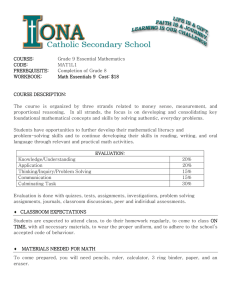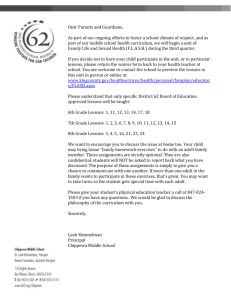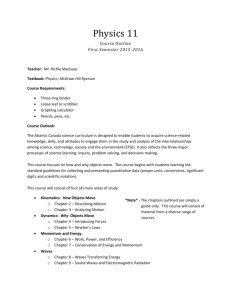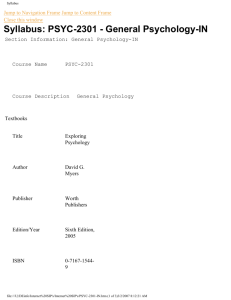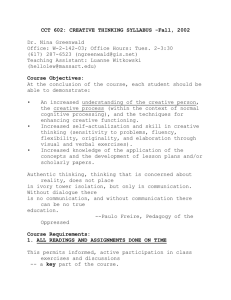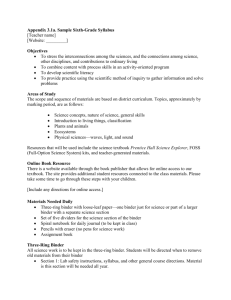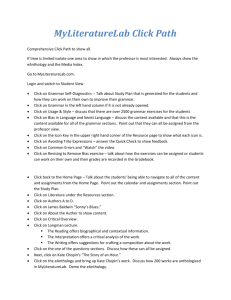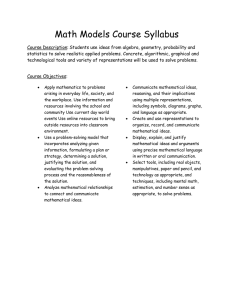Advanced Physics
advertisement
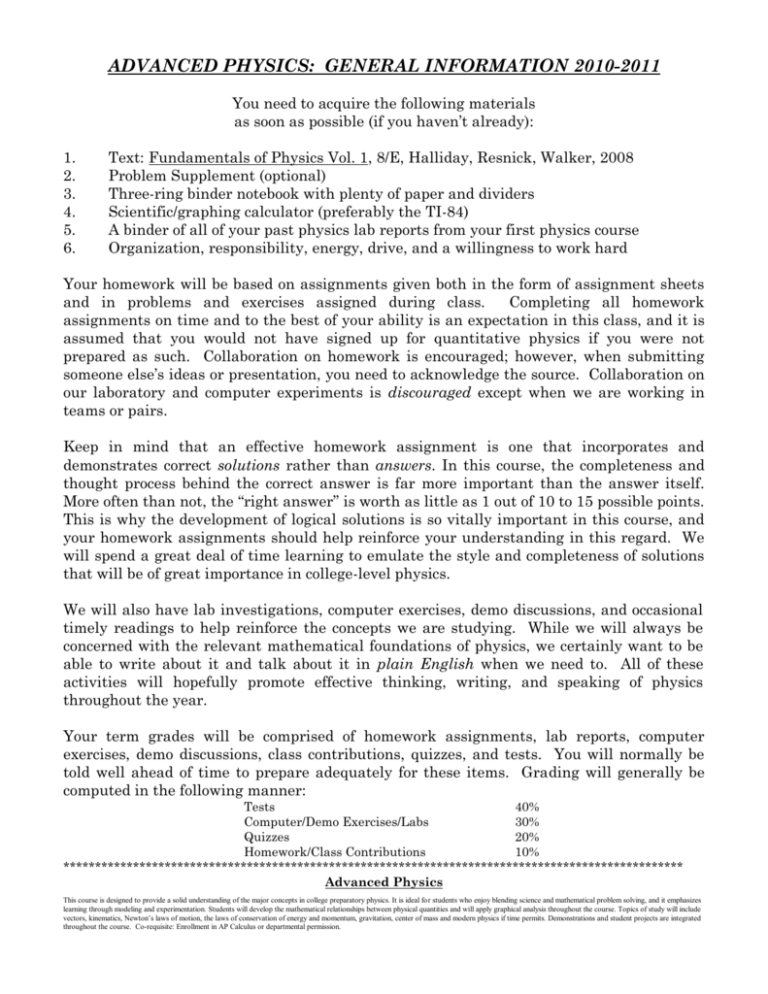
ADVANCED PHYSICS: GENERAL INFORMATION 2010-2011 You need to acquire the following materials as soon as possible (if you haven’t already): 1. 2. 3. 4. 5. 6. Text: Fundamentals of Physics Vol. 1, 8/E, Halliday, Resnick, Walker, 2008 Problem Supplement (optional) Three-ring binder notebook with plenty of paper and dividers Scientific/graphing calculator (preferably the TI-84) A binder of all of your past physics lab reports from your first physics course Organization, responsibility, energy, drive, and a willingness to work hard Your homework will be based on assignments given both in the form of assignment sheets and in problems and exercises assigned during class. Completing all homework assignments on time and to the best of your ability is an expectation in this class, and it is assumed that you would not have signed up for quantitative physics if you were not prepared as such. Collaboration on homework is encouraged; however, when submitting someone else’s ideas or presentation, you need to acknowledge the source. Collaboration on our laboratory and computer experiments is discouraged except when we are working in teams or pairs. Keep in mind that an effective homework assignment is one that incorporates and demonstrates correct solutions rather than answers. In this course, the completeness and thought process behind the correct answer is far more important than the answer itself. More often than not, the “right answer” is worth as little as 1 out of 10 to 15 possible points. This is why the development of logical solutions is so vitally important in this course, and your homework assignments should help reinforce your understanding in this regard. We will spend a great deal of time learning to emulate the style and completeness of solutions that will be of great importance in college-level physics. We will also have lab investigations, computer exercises, demo discussions, and occasional timely readings to help reinforce the concepts we are studying. While we will always be concerned with the relevant mathematical foundations of physics, we certainly want to be able to write about it and talk about it in plain English when we need to. All of these activities will hopefully promote effective thinking, writing, and speaking of physics throughout the year. Your term grades will be comprised of homework assignments, lab reports, computer exercises, demo discussions, class contributions, quizzes, and tests. You will normally be told well ahead of time to prepare adequately for these items. Grading will generally be computed in the following manner: Tests 40% Computer/Demo Exercises/Labs 30% Quizzes 20% Homework/Class Contributions 10% ************************************************************************************************** Advanced Physics This course is designed to provide a solid understanding of the major concepts in college preparatory physics. It is ideal for students who enjoy blending science and mathematical problem solving, and it emphasizes learning through modeling and experimentation. Students will develop the mathematical relationships between physical quantities and will apply graphical analysis throughout the course. Topics of study will include vectors, kinematics, Newton’s laws of motion, the laws of conservation of energy and momentum, gravitation, center of mass and modern physics if time permits. Demonstrations and student projects are integrated throughout the course. Co-requisite: Enrollment in AP Calculus or departmental permission.
